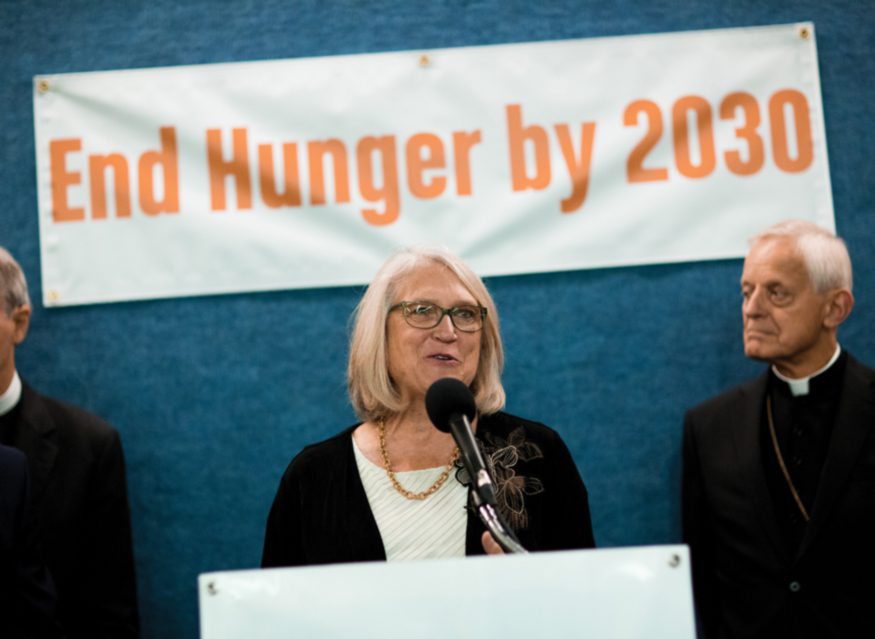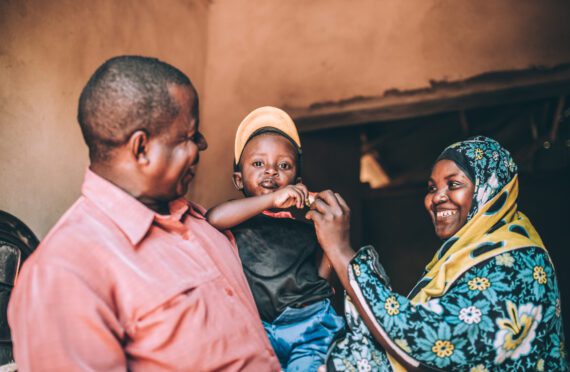Turning Our ‘Efforts to End Hunger in Our Time’
[Note: this article appears in Bread’s 2015 November-December newsletter]
Editor’s note: Rev. Dr. Sharon E. Watkins was a participant at an interfaith summit last month when Bread for the World and other partners brought together 100 religious leaders to discuss how to end hunger and poverty by 2030. This article is adapted from remarks she made the day after the summit.
By Rev. Dr. Sharon E. Watkins
Our different faith traditions find common ground in the call for us to advocate for our neighbors – our local and global neighbors – who struggle with hunger and poverty. Christians take our cue on this from the ministry of Jesus who saw to it that all the people were fed.
The 2008 financial crisis brought a food crisis as well – a 40 percent increase in food insecurity in this country. And yet, since 2011, powerful, political forces have pushed for deep and disproportionate cuts in all the programs that go mainly to people in poverty.
As one local pastor said to me: “Our congregation feeds everyone from homeless families and disabled vets, to a grandmother raising grandchildren, to a city employee who works part-time and lives at a shelter. We see new faces every week. As thankful as I am for the faithful response of church members – it is frustrating that, in truth, we are not addressing the root causes.”
She’s right. We need to treat hunger as a systemic issue. Small groups of volunteers make a difference. But to get the job done, it will take all of us working together. This reality has already stirred leaders from all this country’s faith traditions to join to protect programs for low-income people.
We’ve been surprisingly successful.
At our request, this year, all the leading presidential candidates – except one – have made video statements about how they would address hunger and poverty – understanding that addressing hunger is important to faith voters.
This month [September], faith-grounded advocacy steps to a new level, spurred by the pope’s visit and the international commitment to end hunger and poverty. The religious leaders who gathered at the September 21 End Hunger Summit agreed – with enthusiasm – to join in the effort to end world hunger by 2030. That’s in our lifetime!
To that end, we will work toward a shift in U.S. national priorities between now and 2017 – starting with this fall, when Congress needs to steer away from brinksmanship and put an end to the sequester.
With these priorities in mind, people of faith will be active in the upcoming election. We will make clear that we want a president and Congress by 2017 who will work together, who will reflect God’s special concern for hungry and poor people, our neighbors.
Today, we turn our efforts to end hunger in our time.
Rev. Dr. Sharon E. Watkins is the general minister and president of the Christian Church (Disciples of Christ) in the United States and Canada.



